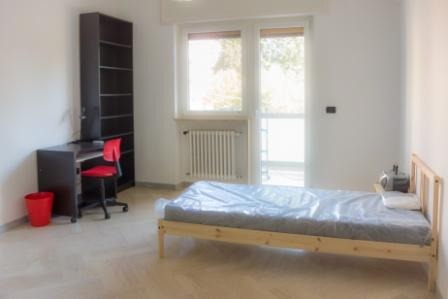A Room With A View – to becoming International Student Accommodation. No, not the sequel to the 1985 movie of the E.M Forster romance novel. It’s about homeowners with a spare room who are thinking of applying to join the Rent A Room Scheme and offer hosted accommodation.
In the aftermath of Britain’s referendum vote to leave the EU, some homeowners who were considering the rewards of international student hosting as both a learning experience as well as much needed second income, may be having second thoughts. This was not the ‘view to hosting a room’ that they were hoping to see when the tax break changes were introduced prior to the EU vote.
Just two months earlier, the decision to host a furnished room for a student from abroad while they are studying at college in Britain was given a favourable boost by the government. On the 6th April 2016, the Rent a Room tax break threshold was increased by a whopping 76.5 per cent, from £4,250 to £7,500.
The substantial rise was seen as a way of allowing those who claim Rent a Room relief, such as homestay accommodation providers to pay less tax and could encourage more homeowners to take up the scheme. Ultimately, the students themselves would benefit as the costs of private renting continue to rise, especially in London and other major university towns, such as Oxford, Cambridge, Brighton and Manchester.
Under the Scheme, the income earned is considered as coming from the provision of ‘residential’ accommodation, not ‘guest’ accommodation. This means that a student occupant uses the room as a home on a “long-term” basis, either on its own or including other parts of the house. This is different from providing accommodation to guests for ‘short periods’ as guest accommodation, which would be taxed as business income and not qualify for ‘rent-a-room’ relief. However, it should be noted that the amount is reduced by 50 per cent if the income is shared with a partner.
Overseas students not put off from applying to Britain
The obvious concern of current and potential hosts is seeing a drastic reduction in the number of students coming from member countries of the European Union as well as from those outside of the EU due to fears over visa restrictions and rising course fees. While some universities and colleges announced that tuition fees for 2016/17 were not being raised to cover any immediate exchange rate losses, latest statistics on university and college applications also suggest that nothing has changed very much either. Overseas students appear not to have been put off from applying to Britain in the months leading up to the June 23rd referendum.
On the 30th June, the deadline passed for ‘final chance’ student applications of up to five university and college choices through UCAS, the Universities and Colleges Admissions Service in the UK. The figures show a total of 674,890 pupils applied to full-time courses in UK higher education – an increase of 1,850 applicants, the same percentage as in the March application deadline. Crucially, the number of EU applicants had increased by 6 per cent, or 2,920 applications, to 51,850.
It’s not that surprising. Students applying from abroad have a choice of over 140 universities and higher education institutions across the UK to choose from, and each offering a wide range of tertiary qualifications recognised worldwide. To date, the UK is second only to the USA as the most popular destination for students from overseas, i.e. more than one in five of the global student share.
Clearly, it remains to be seen if the number of applications for courses in 2017/18 and beyond are unduly affected when formal notification of Britain’s withdrawal process from the EU starts. With two years before the withdrawal is complete and a further ‘transitional’ period of 4 to 5 years at least, the Rent A Room scheme looks set to remain a key service to international students and their host families, alike.
Any potential homestay provider would be recommended to still take advantage of the April tax break and enjoy the positive rewards of hosting. The basic requirements are straightforward enough.
No deadlines for applying to be a homestay host
To qualify for the Rent a Room scheme, an accommodation has to be furnished, with the prospective students occupying one room or an entire floor of the house.
The tax break does not apply to any part of a home, which is let as an office or other business premises. The relief only covers for payments that are made for the use of living accommodation and also does not apply if the house is converted into separate rentable flats or to unfurnished accommodation. In addition, you will not be able to use the scheme if the accommodation is the whole of your home rather than a part of it, or not part of your main home when you let the room. It’s also important to note that items such as insurance, heating, lighting, wear and tear and repairs cannot be claimed as an expense.
There are no deadlines for applying to be a homestay host and those students who failed to get their choice on the 30th June will now be entered in the Clearing house system. Still time to get that spare room ready and start speaking to an established Rent a Room Scheme provider, such as Hosts International.

